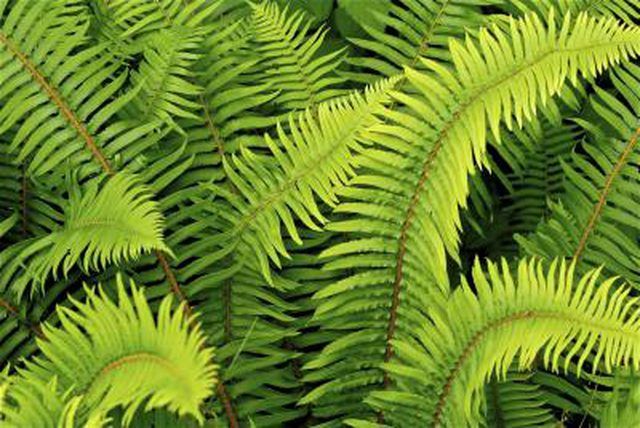Bulbs
Flower Basics
Flower Beds & Specialty Gardens
Flower Garden
Garden Furniture
Garden Gnomes
Garden Seeds
Garden Sheds
Garden Statues
Garden Tools & Supplies
Gardening Basics
Green & Organic
Groundcovers & Vines
Growing Annuals
Growing Basil
Growing Beans
Growing Berries
Growing Blueberries
Growing Cactus
Growing Corn
Growing Cotton
Growing Edibles
Growing Flowers
Growing Garlic
Growing Grapes
Growing Grass
Growing Herbs
Growing Jasmine
Growing Mint
Growing Mushrooms
Orchids
Growing Peanuts
Growing Perennials
Growing Plants
Growing Rosemary
Growing Roses
Growing Strawberries
Growing Sunflowers
Growing Thyme
Growing Tomatoes
Growing Tulips
Growing Vegetables
Herb Basics
Herb Garden
Indoor Growing
Landscaping Basics
Landscaping Patios
Landscaping Plants
Landscaping Shrubs
Landscaping Trees
Landscaping Walks & Pathways
Lawn Basics
Lawn Maintenance
Lawn Mowers
Lawn Ornaments
Lawn Planting
Lawn Tools
Outdoor Growing
Overall Landscape Planning
Pests, Weeds & Problems
Plant Basics
Rock Garden
Rose Garden
Shrubs
Soil
Specialty Gardens
Trees
Vegetable Garden
Yard Maintenance
What Does Potassium Do for Plants?
What Does Potassium Do for Plants?. Potassium is an essential element for plant growth. It is commonly applied to gardens, lawns and orchards as part of a regular fertilizer program. Garden potassium, usually in the form of potash, helps plants use water and resist drought as it regulates overall plant growth and health. Potassium is especially...

Potassium is an essential element for plant growth. It is commonly applied to gardens, lawns and orchards as part of a regular fertilizer program. Garden potassium, usually in the form of potash, helps plants use water and resist drought as it regulates overall plant growth and health. Potassium is especially important to edible crops and enhances the size and quality of fruits and vegetables.
Potassium Problems
When plants do not have enough potassium, they have symptoms such as stunted growth, poor flower development and lower quality fruit or vegetable harvests. Plant leaves may look scorched and curl at the tips. As potassium-deficient plants grow, the leaves curl along the edges and often appear dry, white-spotted or crinkled at the edges. Growth is slow, and wind or high temperatures easily damage the plants.
Nutritional Boosts
Potassium is a common mineral in soil, but often only a fraction of this potassium is available for plants. Some forms of potassium are easily absorbed for plant growth. Other potassium forms are not usable by plants. Gardeners and agriculturists discovered that if potassium in the soil is not in a plant-friendly form or if the soil is potassium-depleted, other kinds of potassium can be applied as fertilizer for healthy plants.
Application Options
Potassium is commonly applied in solid or liquid fertilizers. Commercial fertilizers list the three major plant nutrients in label percentages, such as 5-10-5, known as the NPK ratio. The first number is Nitrogen (N), the second is Phosphorous (P) and the third is Potassium (K). Solid, granular fertilizers are scattered around garden plants or spread on lawns and watered in. Liquid fertilizers are applied through spraying or watering. In greenhouses, potassium is sometimes applied through irrigation systems.
Potassium Effects
Potassium in commercial fertilizers is water soluble, meaning it readily dissolves in water and can be absorbed by the plant roots. Potassium controls plant stomata, the cells that control water. Without enough potassium, the stomata do not efficiently use water and the plant becomes becomes vulnerable to disease and heat stress. Potassium also aids the enzymes promoting plant life. Without potassium, the plant cannot cycle the nutrients to feed roots, leaves and fruits.
Healthier Plants
Potassium grows healthy lawns by promoting green sturdy plants on deep roots. It aids roses (Rosa spp.), hardy in U.S. Department of Agriculture plant hardiness zones 4 through 11, and other flowering plants by encouraging strong stems and well-developed flowers. Farmers depend on potassium for healthy crop production. Plants rich in carbohydrates such as potatoes (Solanum tuberosum) need potassium for tuber growth. Potassium regulates plant growth so that harvested fruit is fully formed, high quality and has a better shelf life for consumers.